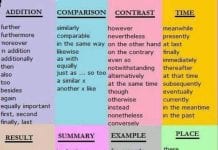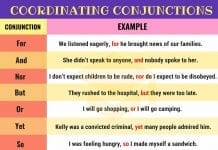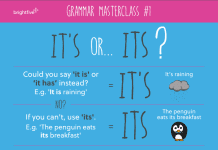The object of a sentence is the person or thing that the action happens to. If the verb is a linking verb (a form of the verb to be), then the object is whatever the description of the subject is.
For example, if I have a simple sentence like “Todd hits the ball”, the object is the ball since it is the thing that is being hit. When there are multiple words describing that object, though, how do you know which one is the object?
Simple vs Complex Objects
The difference between simple and complex objects is actually very simple. Take a longer sentence like the one below:
- The kids from my kindergarten classroom have always wanted to go to the park at the end of the street.
For this sentence, you can break it apart between the subject and the object. Those subjects and objects can either be simple or complex.
What you can use to help you remember the difference is that a simple subject or object consists of just one word or short phrase. Most of the time it is just one word, but for certain phrases like theme park or airport terminal, the adjectives in front of the main noun are essential to understanding what they are.
When you have a complex object, it includes whatever you have used to describe that simple object identified from above. For example, any adjectives, prepositional phrases, adverbs, etc. that apply only to the object noun are considered part of the complex object.
For the example above, the break down is this:
- Simple object: park
- Complex object: park at the end of the street
Note that this example has a prepositional phrase that modifies park, making that phrase part of the complex object.
For subjects, this is the same. The simple subject and complex subject differ just because of the level of detail added to them. For the subjects:
- Simple subject: kids
- Complex subject: kids from my kindergarten classroom
Note that there are not always complex subjects or complex objects in a sentence. If there are no descriptive words that explain more about a noun, there is only a simple subject or object.
In addition, not all sentences have objects. If you have a very short sentence, such as she swims, you only have a simple subject and one verb. There is no object there.
Complex and Compound Objects
There is another category of objects, known as compound objects. These are similar to but distinct from complex objects because they contain conjunctions – typically and. For example, take the following sentence:
- Sally went to the park near her house and the store where all the employees know her name.
For this sentence, there seem to be two objects. Sally goes to two different places, the park and the store. You could say that the park and store are the simple objects. There are also two complex objects, the
1) park near her house and
2) the store where all the employees know her name.
Each of these objects has a descriptor that tells you more about where Sally goes.
If you want to talk about the compound object, however, you would combine the two places. This would be “the park near her house and the store where all the employees know her name”.
For a simpler sentence, such as
- Pam eats pizza and ice cream, the compound object would be pizza and ice cream.
There is no complex object.
Simple and Complex Object Examples (TEST)
Here are some sentences, with different simple and complex objects! Try to pick out both the simple and complex objects:
- We are reading books by J. K. Rowling this semester in English class.
- My closet is full of dresses that are only suitable for the winter.
- The store sells snacks that are imported from all over the world.
- His brother is working on an app designed to help people learning English improve their pronunciation.
- The company employee took some extra supplies because he did not want to pay for them himself.
- The sponsor of the event gave out toys shaped like their logos.
The simple and complex object answers for the above sentences are:
- Simple object: books
- Complex object: books by J. K. Rowling
- Simple object: dresses
- Complex object: dresses that are only suitable for the winter
- Simple object: snacks
- Complex object: snacks that are imported from all over the world
- Simple object: app
- Complex object: app designed to help people learning English improve their pronunciation
- Simple object: supplies
- Complex object: extra supplies
- Note that the second half of this sentence, the dependent clause that begins with because, is not part of the object. Instead, it explains the employee’s actions.
- Simple object: toys
- Complex object: toys shaped like their logos
More details about the topic:
https://www.myenglishteacher.eu/blog/complex-sentences-and-compound-sentences/

























